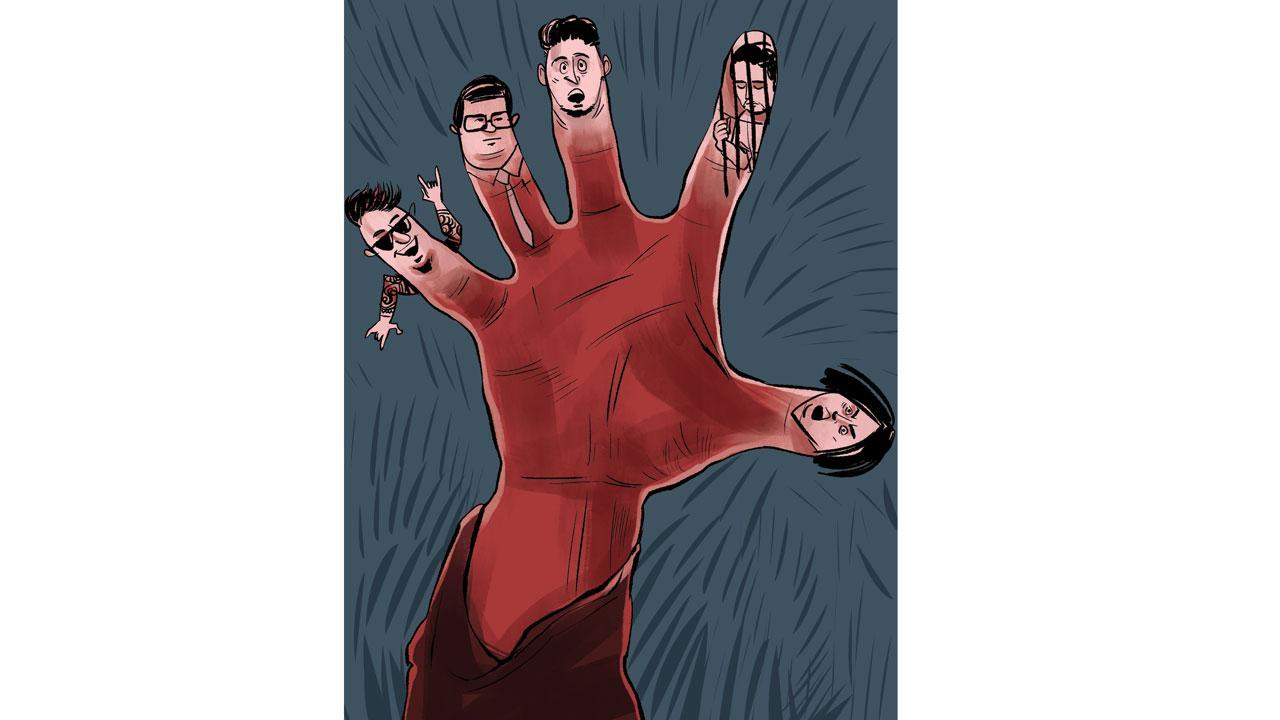Some saw it as a tool for glamorous fulfilment and furtherment. Some saw it as a Toolkit for knowledge and change.

Illustration/Uday Mohite
She wondered about the future. Specifically, what it meant for them, her generation of 60 million-odd kids. They were divided loosely down the centre. Divided in their perspective of social media.
ADVERTISEMENT
Some saw it as a tool for glamorous fulfilment and furtherment. Some saw it as a Toolkit for knowledge and change.
She was 20, aware, politically aware. She quite clearly sided with the second category.
A young girl, not much older than herself, a climate activist, was plucked out of her home in Bengaluru, thrown into judicial custody in Delhi, for “amending” slightly a Toolkit, accused of being part of a huge terrorist conspiracy. She felt it was absurd, she wondered if this young girl was being made an example of, “This is what happens, young people, when you challenge us. When you challenge the most basic Indian tenet—children should be seen and not heard,” the political “uncles” seem to be telling them.
The attempt was to spread a climate of fear among them.
A stand up comic, lured to Indore, arrested in a café before he’d uttered a word, holed 37 days in a dingy jail, danger lurking in the shadows, waiting for him. It’s true that this was a communal conspiracy, but also a message sent to comics everywhere: “We will watch you, watch your content! Misinterpret it to suit our needs. What are your jokes about? Are you making fun of ‘us’, the Big Brothers of our nation demand to know. We don’t laugh, we wish to replace ‘sense of humour’ with a ‘sense of hate’.”
And then, she wondered about the stand up comic, now out of jail, on bail. She heard he was quitting comedy. Where would he go from here? His ilk, forever targetted by an army of killjoys.
Then, she thought about herself and the country of her birth, and what separated her from her elders.
It wasn’t just about the generation gap she had with her parents.
This was a macro question. Could her gen just as easily turn the other cheek, take off the blindfold they’d been born with? Could they continue to hide behind the veil of ignorance, the curtain of silence?
Could they justify inaction with, “Hey dude, I need to get through exams, I can’t worry about where’s the country going!” or “Bro, I have to focus on my career, I can’t be bothered about the larger picture.”
Also, could her generation, hitherto obsessed with TikTok type videos, and “Pawri” type nonsensical songs, their “five secs of fame on Insta video”, continue to live in La La Land?
Could that object in their hand, the handset, ever become a megaphone to “speak out”?
The protest, the candle march, the banner, the sloganeering had minimised itself into the hashtag. The hashtag had the ability to stir up scores of young people like wildfire.
And, with half of India’s population below 25, what did her brethren think?
Would they come to be termed as Generation E I E (Enough Is Enough)?
Or finally, would the powers- that- be have succeeded in their repressive endeavour to crush any chance of debate, dialogue, dissent or discussion?
Would they end up being Generation F? Generation Fearful or Generation Furious?
How did they wish to be remembered, what was to be the legacy?
A generation feasting on SnapChat or one that ‘Snapped into action’.
Only time would tell.
Rahul daCunha is an adman, theatre director/playwright, photographer and traveller. Reach him at rahul.dacunha@mid-day.com
 Subscribe today by clicking the link and stay updated with the latest news!" Click here!
Subscribe today by clicking the link and stay updated with the latest news!" Click here!






